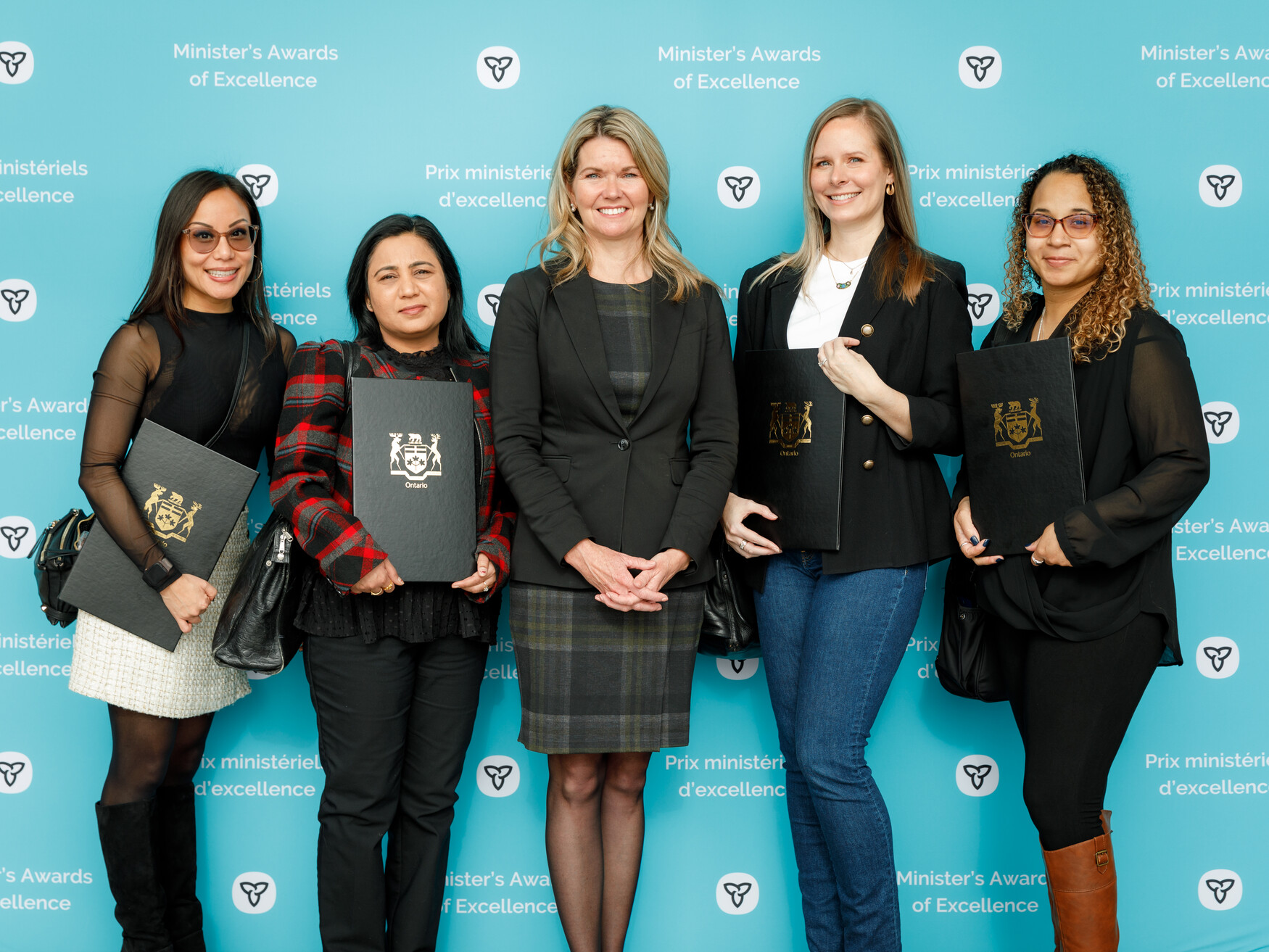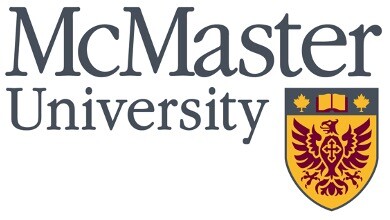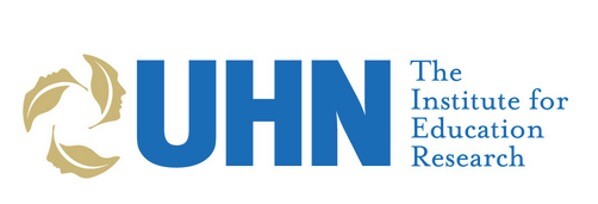Breadcrumbs
- Home
- Research & Innovation
- Innovation
- SLED-VAST
SLED-VAST

Student-Led Environments to Deliver Virtual Autism Supports for Wait-times (SLED-VAST)
*please note: This website is in redevelopment as NEST (Network for Education, Scholarship, and innovaTion in autism care)
https://www.nestknowledgehub.com/*
SLED-VAST is a Student Leadership Experience (SLE) supported by the Ministry of Children, Community and Social Services (MCCSS) Ontario Autism Program (OAP) Workforce Capacity Fund (Jan 1, 2022-Mar 31, 2023; Apr 1, 2023-Mar 31, 2024; Apr 1, 2024-Mar 31, 2025).
SLED-VAST's Consortium & learners received the Ministry of Colleges and Universities' 2021/2022 Minister's Awards of Excellence in the category of Future-Proofing Ontario's Students, recognizing faculty and staff who have led the way in adapting programs that support new ways of learning.
- Read more from Holland Bloorview about SLED-VAST capturing the Minister's Award.
- Learn more from UHN about SLED-VAST's unique workplace-based learning opportunity.

SLED-VAST's partners include (but are not limited to):

University of Toronto's
Centre for Advancing Collaborative Healthcare & Education (CACHE)
at University Health Network
Structure
SLED-VAST project activities will be undertaken with 3 areas of focus:
1. SLED-VAST Consortium
The Consortium is responsible for:
- Ensuring that the SLED-VAST initiative is a genuinely and meaningfully partnered co-creation of a new SLE
- Building partnerships and establishing connections to ensure representation and impact (including adding Consortium members as needed)
- Informing, reflecting on, and sharing practical developments, including future opportunities for scale-up and sustainability
2. SLED-VAST Learning Opportunity (more details below)
Learners will be involved in co-creating and co-delivering projects that will contribute to foundational supports for early autism services during wait-times
3. Research & Evaluation
Ongoing scholarship about and evaluation of SLED-VAST will occur in partnership with the Consortium.
Knowledge mobilization of dialogic approaches and coaching supports will be embedded into the SLEs.
SLED-VAST Principles
Adapted from SLE Steering Committee Student-Led Environment Principles.
Collaboration and Partnership Across Sectors
SLED-VAST aims to reciprocally engage educational institutions, hospitals, patients/clients and families, community organizations, and non-clinical care providers through knowledge mobilization and collaboration. In doing so, power, privilege, equity, diversity, inclusion, and accessibility (EDIA) between and among partners and who/how we engage are continuously considered and attended to. Within these EDIA considerations, we will pay particular attention to how Indigenous perspectives and knowledges are recognized, valued, and integrated into how we work together.
Interprofessional Student Learning
SLED-VAST promotes comprehensive practice, care, and/or education by fostering interprofessional skills and knowledge development by engaging students and supervisors of at least 2 different professions. Skilled interprofessional facilitators address and foster critical reflection on the inherent power dynamics in interprofessional education and practice.
Safety
Student Led Environments (SLEs) attend to physical and psychological safety measures, ensuring that they are updated as needed (e.g. Covid protocols). Psychological safety is balanced with the inherent discomfort of transformative education (and attending to the differences between discomfort and harm).
Learning Through Leading: Acknowledging and Sharing Power
SLED-VAST uses leadership to engage and support students’ learning, while striving to disrupt and transcend the conventional hierarchy that exists between students and educators, as well as acknowledging the power relations between institutions and communities, professions, and patients/clients/families. SLED-VAST offers opportunities for growth by inviting and inspiring critical reflection, mutual trust, and supported risk-taking/leadership.
Addressing Gaps or Unmet Needs
The purpose of SLEs is to address the unmet needs of the community/ies they intend to support. Each SLE is unique and creates new program plans based on continual partnership and engagement with partners to identify and address service gaps and system needs.
Hold Space for Indeterminacy
SLED-VAST acknowledges uncertainty and value-conflicted experiences that recognize unique contexts, ongoing work, and different ways of knowing, thinking, and doing. SLED-VAST is adaptable and responsive to emergent conditions and focuses on creating explicit space for curiosity, wondering, dwelling in the uncertainty and making space for “stories without endings” (Kumagai & Naidu, 2020).
Radical Transparency
All decision-making processes, roles and responsibilities, accountabilities, and liabilities relevant to the SLE are identified, clearly articulated, and shared including with learners, educators, patients/clients/families, and other system partners.
Showing Meaningful Impact
Through continual reflection, ongoing and developmental evaluation and assessment using meaningfully aligned indicators, and communication of core values, SLEs demonstrate their role in addressing service or resource gaps for people, learners, teams, and organizations.
Additional information available via SLED-VAST Information Sheet for Potential Partners.
Contact the SLED-VAST Consortium: SLED-VAST@utoronto.ca
SLED-VAST Consortium
- Gayle Adams-Carpino, Faculty, Interprofessional Education-Laurentian University Division of Human Sciences, NOSM University
- Michelle Addison, Director, Health Professions & Collaborative Practice, Thunder Bay Regional Health Sciences Centre
- Amanda Binns, SLP, PhD, Adjunct Research Professor, Western University, Clinical Manager & Co-Lead, SLED-VAST
- Victoria Boyd, PhD, MPC. Post-doctoral fellow, CanChild, McMaster University
- Wenonah Campbell, Associate Professor; John and Margaret Lillie Chair in Childhood Disability Research; Scientist, CanChild, Speech-Language Pathology Program School of Rehabilitation Science
- Farah Friesen, Manager, Research & Knowledge Mobilization, CACHE and Co-Lead, SLED-VAST
- Sharon Gabison, Assistant Professor, Teaching Stream, Department of Physical Therapy, University of Toronto
- Sylvia Langlois, Associate Professor, Department of Occupational Science & Occupational Therapy, University of Toronto and Associate Director, Curriculum & Faculty Relations, CACHE
- Dean Lising, Lecturer, Department of Physical Therapy, University of Toronto and Integration Lead, Collaborative Healthcare & Education, CACHE
- Stella Ng (Co-Chair), Director & Scientist, CACHE, Associate Professor, Department of Speech-Language Pathology, University of Toronto, Scientist, Wilson Centre, and AMS Phoenix Fellow in Compassion and AI/Digital Technology
- Kathryn Parker(Co-Chair), Associate Director, Transformative Change, CACHE; Fellow, AMS Phoenix Project; Assistant Professor, Department of Paediatrics, Temerty Faculty of Medicine University of Toronto
- Mike Ravenek, Manager, Health Sciences, NOSM University
- Nicole Woods, Scientist & Associate Director of Operations/UHN, The Wilson Centre, Director, The Institute for Education Research (TIER) at UHN, and Associate Professor, Department of Family and Community Medicine, Temerty Faculty of Medicine, University of Toronto





